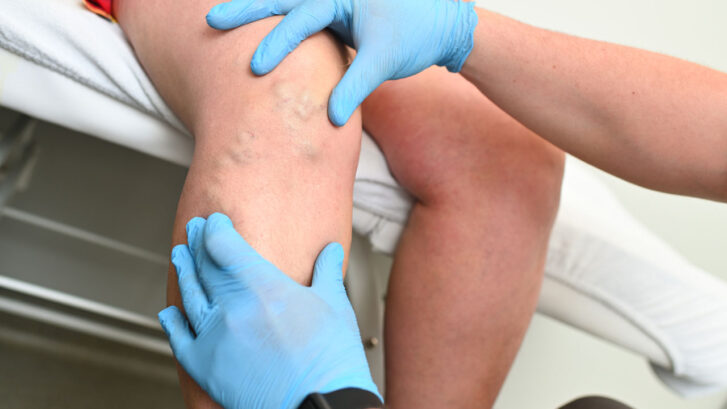Varicose veins, those twisted, enlarged veins that often appear on the legs, can be a source of discomfort and concern. While they are typically a common vascular issue, varicose veins can take on greater significance when they occur in patients with heart conditions. In this blog, we will delve into the connection between varicose veins and heart conditions, explore the evaluation process, and discuss risk management strategies to ensure the overall well-being of affected patients.
Understanding Varicose Veins
Varicose veins are characterized by the dilation of veins, often resulting in visible, bulging veins on the legs. They can cause symptoms such as pain, swelling, and discomfort, affecting one’s overall quality of life. While varicose veins are generally not life-threatening, their presence can be an indication of an underlying venous issue.
The Connection Between Varicose Veins and Heart Conditions
The circulatory system plays a vital role in both heart health and the development of varicose veins. When venous valves weaken or fail to function properly, blood can pool in the lower extremities, leading to the formation of varicose veins. This venous insufficiency may also be indicative of underlying cardiovascular conditions, such as chronic venous insufficiency (CVI), which can have implications for heart health.
Evaluation and Diagnosis
For patients with varicose veins and heart conditions, a comprehensive evaluation is essential. This typically includes:
Medical History: A detailed review of the patient’s medical history, including any preexisting heart conditions or risk factors.
Physical Examination: A thorough physical examination to assess the severity and extent of the varicose veins and their impact on the patient’s health.
Non-Invasive Testing: Non-invasive diagnostic tests, such as ultrasound, to evaluate the venous circulation and identify the underlying causes of the varicose veins.
Cardiovascular Assessment: A cardiovascular assessment to determine if there are any concurrent heart conditions that need to be addressed.
Risk Management and Treatment
Effective risk management and treatment strategies may include:
Lifestyle Modifications: Encouraging patients to adopt heart-healthy lifestyle changes, including regular exercise, a balanced diet, and smoking cessation.
Compression Therapy: The use of compression stockings or garments to improve venous circulation and alleviate the symptoms of varicose veins.
Endovenous Procedures: Minimally invasive procedures like endovenous laser treatment (EVLT) or radiofrequency ablation (RFA) to address the underlying venous insufficiency.
Cardiac Monitoring: Regular cardiac monitoring to manage and control heart conditions in tandem with venous issues.
Medication: In some cases, medication may be prescribed to manage heart conditions and improve blood circulation.
Conclusion
The presence of varicose veins in patients with heart conditions should not be overlooked. It is essential to address both the venous and cardiovascular aspects of their health to ensure comprehensive and effective care. Through proper evaluation, diagnosis, and risk management, patients can enjoy improved well-being and a higher quality of life. If you or a loved one is facing this dual challenge, consult a healthcare professional experienced in treating both varicose veins and heart conditions for personalized care and guidance. Your journey to better health begins with a holistic approach to wellness.


